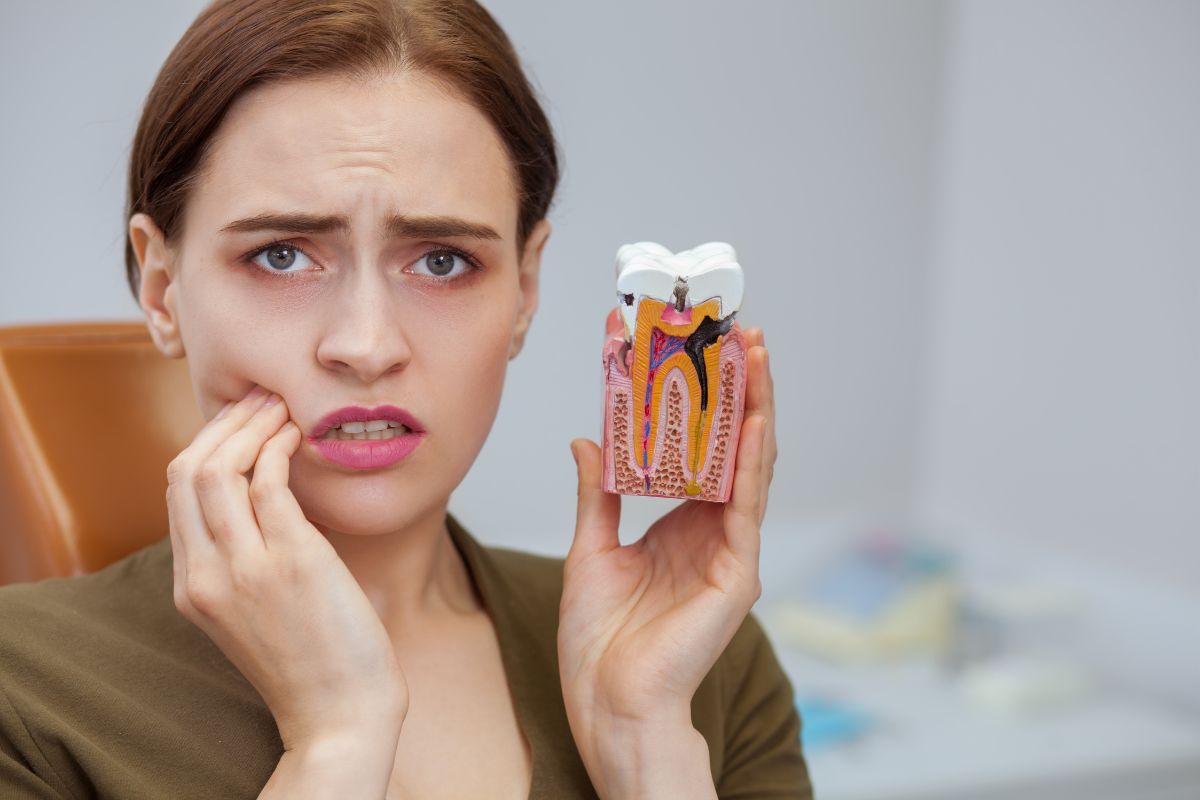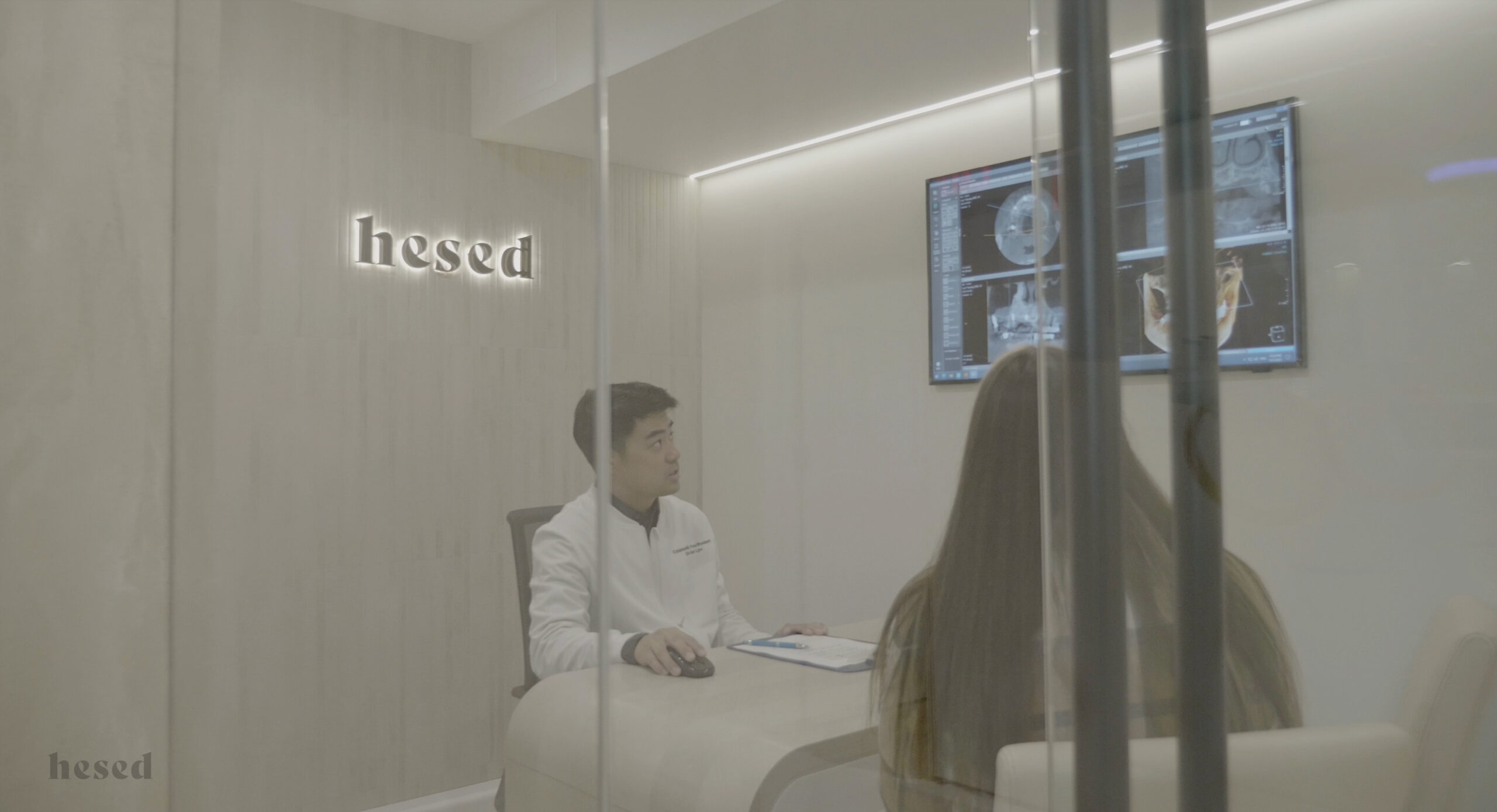Dental veneers are temporary porcelain-made shells that are custom-made to hide a patient’s teeth imperfections. Anyone looking for a stunning transformation of their smile opts for veneers. They indeed complete the aesthetics of a perfect smile; however, they need to be properly cared for. For instance, you may wonder, “can you get cavities with veneers?”
Although veneers usually have a high survival rate—more than 90% of dental veneers last up to 10 years—they can be prone to caries if proper care is not given.

Porcelain veneers are sturdy and made up of a rigid ceramic material. Therefore, they are least likely to be affected by tooth decay or caries. However, your dental veneers will not be affected by cavities, unlike your natural teeth.
Veneers protect the teeth along with aesthetics and esthetics. However, patients are prone to cavities if they do not take care of their veneers and teeth correctly.
When proper oral hygiene is not administered, food particles can hoard around the teeth or spaces between veneers. The bacteria found in oral mucosa will feed on these food particles and divide rapidly. Since veneers hide the teeth imperfections underneath, you won’t be able to recognize any changes.
By this time, the bacteria has already started invaginating tooth enamel. Thus, it results in a cavity while using veneers.
Another fact to remember while answering the question, “Can you get cavities with veneers?” is that veneers don’t cover all of the teeth. Veneers only cover the anterior (front) teeth. That means mostly the incisors and canines are covered. In addition, the anterior teeth have less chance of developing caries.
It was estimated that the permanent molars have higher chances of developing cavities than the rest of the oral cavity. Since the rear teeth don’t have veneers, they do not get any extra protection either. Therefore, the rear teeth might be affected by tooth decay and cavities. These caries may reach anterior teeth with time as well.
Veneers protect the teeth from chipping, gaps, mal-alignment, and stains, but they do not help against cavities. You have to make an effort to improve your oral hygiene to avoid caries. Consider these useful tips in this regard:
Smoking is injurious to the lungs and oral health. A number of gum diseases and cavities are associated with smoking. Therefore, if you smoke, you should quit this habit for better oral hygiene.
Acidic and sugary food items can exacerbate cavities. These food particles are ideal fodder for bacterial growth in gums and gaps between the teeth. Rinse your mouth a few times after eating anything to clear out your mouth completely.
Most people do not take this seriously, but it is the most important thing. Basic oral hygiene includes brushing and flossing.
Dentists recommend using fluoride toothpaste, brushing twice a day for two minutes each, and flossing once every day. This way, your oral cavity and spaces between the teeth will be devoid of any food particles, and bacteria won’t reproduce.
Dental checkups are an important part of steering away from bad oral health. Many people often ask dentists, “Can you get cavities with veneers?” and their usual response is, “Yes, but not if you regularly go for a dental checkup.”
That is because if there is a cavity forming underneath the veneers, your dentist will notice during a checkup. Thus, they will perform a thorough cleaning on the spot and inform you as well to take proper oral care. This way, you can easily avoid getting a cavity.
Wearing a mouthguard becomes essential in many situations. For instance, if you have a habit of grinding your teeth during sleep, you should use a mouthguard. The mouthguard will stop your teeth from unnecessary abrasion and occlusions, saving your teeth and gums.
You should also wear a mouthguard during different sports to avoid injuries, such as boxing, basketball, and even football. Injuries cause internal bleeding, leading to oral infections and higher chances of caries.
Here are some questions people also asked along with the query, “Can you get cavities with veneers?”:
No, veneers cannot prevent tooth decay and cavities. Veneers are just cosmetic items that hide imperfections and improve a person’s oral aesthetics. Tooth decay can only be stopped by practicing the best oral hygiene.
Veneers do not decay as they are synthetically made up of either porcelain or composite materials. However, porcelain veneers can last more than 15 years, and composite materials can last up to 5 years. Thus, cavities or decay does not affect veneers like natural teeth.
No, veneers cannot cause tooth decay. Tooth decay takes place in the absence of proper oral hygiene. In such cases, plaque and bacteria build up in the mouth. The teeth and gums become susceptible to cavities, which is an ideal situation for harmful microorganisms.

Veneers are a great way to uplift your aesthetic appearance and perfect your smile. But can you get cavities with veneers? Yes, you can definitely get cavities with veneers, especially when you don’t take care of your oral health.
If you are looking for a cosmetic dentist in NJ, Hesed Dental Clinic would be a great choice. You can avail yourself of expert guidance from the best dentist in NJ along with professional staff. Do not let inexperienced dentists endanger your perfect smile. Opt for our perfectly crafted veneers in NJ for a long-lasting smile.
Do you have a toothache or think you may need a root canal? Call or find us online for a convenient appointment at Hesed Dental Clinic. Our skilled, professional staff is ready to gently and efficiently treat your dental issues. We are located at 543 Gorge Road, Cliffside Park, NJ 07010. We look forward to helping you restore optimal dental health and a natural, beautiful, pain-free smile.

Hesed Dental 543 Gorge Road Cliffside Park, NJ 07010
201 941 8877